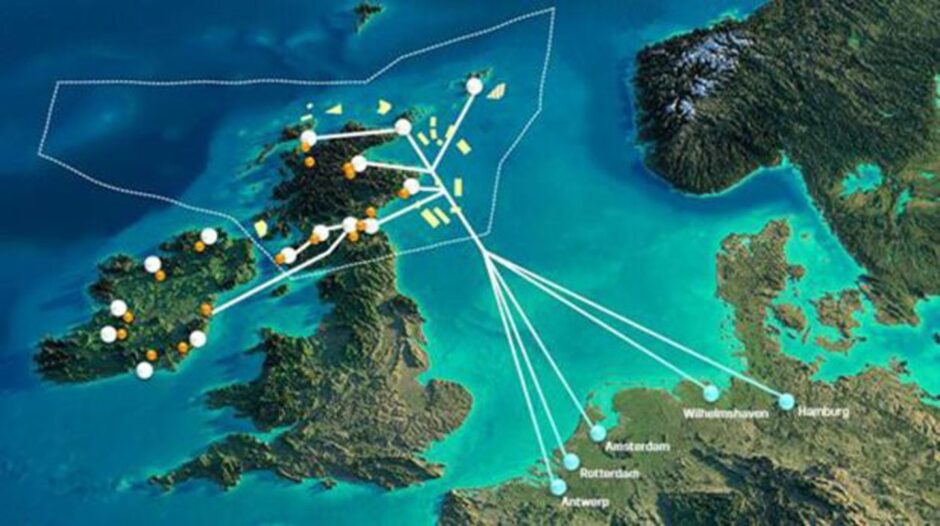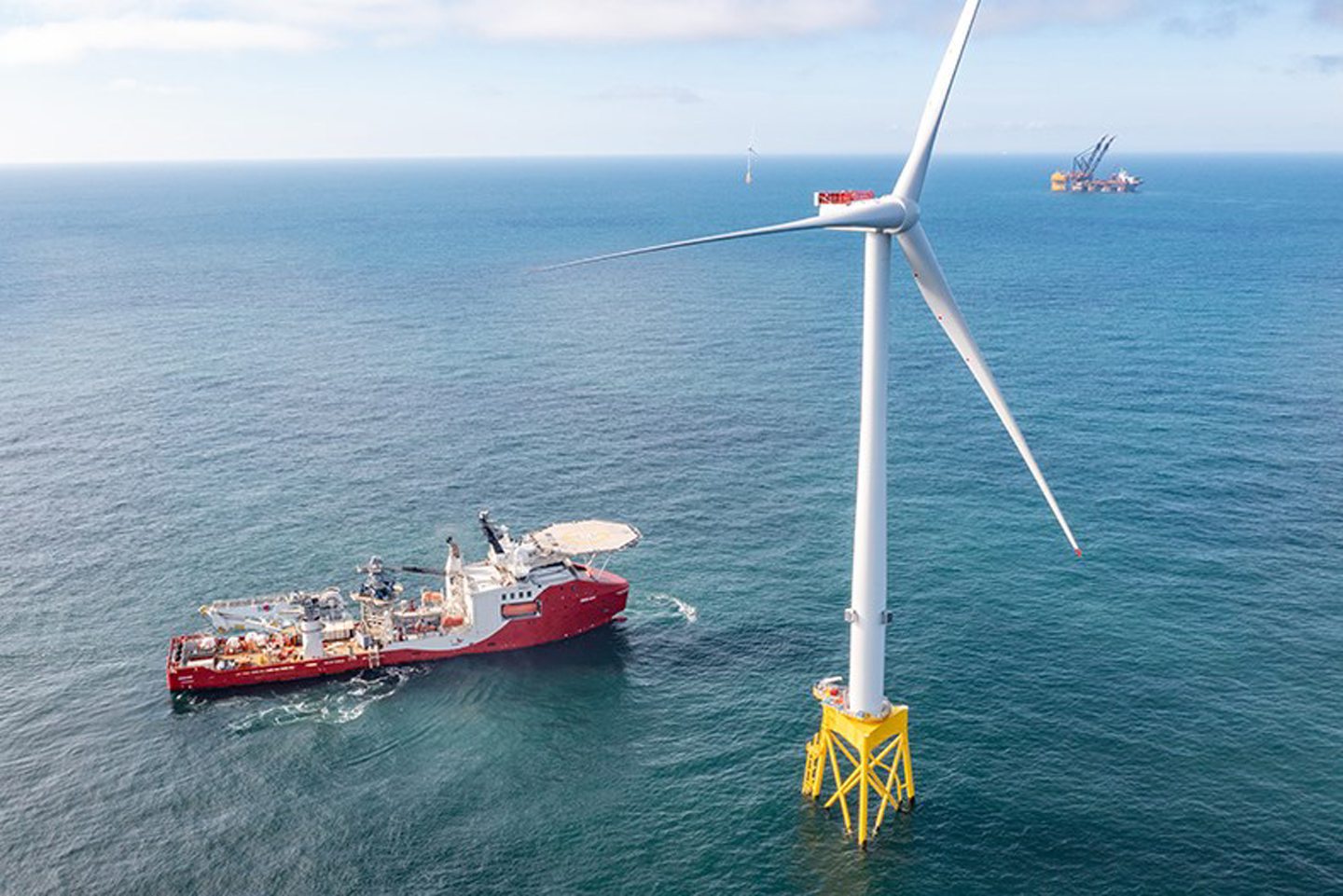
A new report from Aberdeen’s Net Zero Technology Centre (NZTC) has found Scottish hydrogen exports could meet up to 100% of German import demand by 2045.
The Scottish Government first announced plans for a £2.7 billion pipeline network connecting hydrogen hubs in Scotland to Germany last year.
The Hydrogen Backbone Link (HBL) could seen an entirely new hydrogen pipeline linking the Flotta oil terminal in Orkney to the city of Emden in Germany.
It would also include a “backbone” connecting sites at Sullom Voe, the Cromarty Firth, and the St Fergus Gas Terminal in Aberdeenshire to the pipeline.
Now the NZTC has released further details on the feasibility of possible hydrogen export scenarios from Scotland to Germany.
Green hydrogen export
Funded by the Scottish Government, the report analyses potential Scottish hydrogen production and German demand, looking at the “opportunities and steps required to unlock the full potential of a green hydrogen collaboration”.
It focuses on off-taker potential in Germany and on cross-border distribution of the volumes of hydrogen available, the NZTC said.
According to the report, prospective Scottish hydrogen exports could potentially satisfy between 22% to 100% of Germany’s hydrogen import volume by 2045.
Produced with Hambug-based Cruh21, the report identifies two critical developmental phases, with the first stage encompassing early production and end-use activities up to 2030.
The first stage precedes the potential installation of hydrogen pipelines to export 35TWh of hydrogen from Scotland to Germany.
Meanwhile, the second phase looks at the period between 2030 and 2045, and involves the commissioning and ramping up of pipeline infrastructure to allow for up to 94TWh in hydrogen exports.
Overall, the report found ammonia emerges as the most feasible option for accelerating the establishment of hydrogen supply chains towards 2030, with its infrastructure and transportation capabilities already “well-planned and progressing”.
The report recommended subsidy mechanism for early projects, strengthening bilateral partnerships between Scotland and Germany, and investment in export infrastructure as among the key measures for developing a hydrogen supply chain.
Scotland ‘strongly positioned’ to become
In a statement, Scotland’s net zero and energy cabinet secretary Mairi McAllan said the Scottish government is determined to realise the potential for hydrogen export and will soon publish an export plan.
“Scotland is strongly positioned to become a major exporter of hydrogen to Northern Europe and the UK – contributing to our climate objectives and to green economic property for our nation,” Ms McAllan said.
“Green hydrogen that is created with renewable electricity will help to reduce our emissions for hard to decarbonise sectors in Scotland and could also be a great export opportunity to the rest of the UK and to our European neighbours.”
NZTC senior project engineer Ana Almeida said developing the report in collaboration with Cruh21 ensured the report considered the barriers and benefits for both Scotland and Germany.
“Whilst the potential for hydrogen production in Scotland is well understood alongside the scale of predicted demand in Germany, there is a lack of tangible strategies connecting supply and demand and its evolution from present day to 2045, when both countries aim to achieve Net Zero carbon emission targets,” Ms Almeida said.
“The scenarios outlined in this report illustrate pathways to maximise the opportunity of international hydrogen distribution.”
Cruh21 consultant Meryem Maghreb said: “This report provides a holistic overview and stresses the necessity of developing a synchronised hydrogen and derivatives infrastructure, encompassing export terminals and pipeline networks, to bolster the hydrogen supply chain between Scotland and Germany.
“The critical factors to accelerate collaboration between Scotland and Germany lie in mapping supply and demand development and the establishment of Pan North Sea transport infrastructure.”
Cruh21 is also a partner in Project MOHN, funded by Germany’s research ministry, focused on offshore hydrogen production in the North Sea.
Recommended for you


 © Supplied by SSE
© Supplied by SSE © Image: Darrell Benns/DC Thomson
© Image: Darrell Benns/DC Thomson